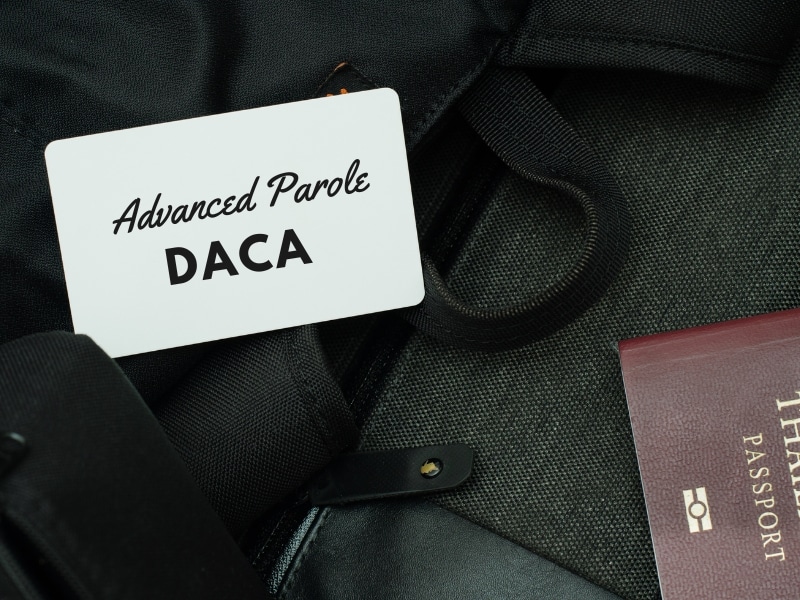If your parent is visiting you in the U.S. on a tourist visa, you may be able to apply for a change of immigration status, allowing him or her to stay. To obtain your parent’s green card, you will need sufficient supporting documentation and the appropriate forms. Knowing how this process works in Chicago can help you know what to expect and how to prepare properly.

Which Immediate Relatives of a U.S. Citizen Are Eligible for a Green Card?
Different types of immediate family members of U.S. citizens may be able to seek a green card through a relative visa. The following are the immediate family members of citizens that may be able to seek immediate relative immigrant visas:
- Parents
- Spouses
- Unmarried children under the age of 21-years-old
However, these immediate family members must meet eligibility requirements if they want to successfully receive a green card in immigrant cases.
Adjustment of Status
If he or she is currently in the U.S., the first step toward getting a green card for an immediate family member is to apply for an immigration adjustment of status to become a lawful permanent resident (LPR).
To qualify for adjustment of status, your parent must undergo inspection and admission or parole from an official immigration officer with U.S. Citizenship and Immigration Services (USCIS). However, certain exceptions to this requirement may apply, depending on the individual.
Consular Processing
If the immediate relative is currently outside the U.S. and wants to obtain a green card, he or she must undergo consular processing instead of adjustment of status. This type of processing entails multiple steps to obtain LPR status through a U.S. Department of State consulate in the person’s country of origin.
The process would begin by having the U.S. citizen sponsoring the relative file a petition on the relative’s behalf, but it’s also possible to become an LPR by applying for asylum or refugee status. After filing the petition, the individual would need to wait for USCIS to make a decision on the petition, followed by receiving notification from the National Visa Center. You would then need to schedule and attend an appointment with an official at your consulate. You may then receive a relative visa, which will then enable you to receive a green card.
Steps to Get Your Parent’s Green Card
If you want to help a parent get a green card, there are some items to consider and prepare to successfully do so. The following are some steps you can expect when obtaining a green card for a parent or another immediate relative.
Necessary Supporting Documents
There are supporting documents to bring to an attorney for a green card and present to USCIS when applying for a parent’s green card. These documents will supplement the forms you submit with your application to help prove eligibility.
These supporting documents include copies of:
- Your own birth certificate
- Your certificate of naturalization or passport if you were born in another country
- If only petitioning your father, your parents’ civil marriage certificate
Through the USCIS website, you can learn about other forms of documentation you may need to help support a green card application. For instance, if you intend to obtain a green card for a stepparent, you would need a copy of a death certificate, divorce decree, or annulment decree to show that your biological or stepparent’s previous marriages ended legally.
Complete Required Forms and Medical Examinations
To qualify for a green card, you must also file certain forms and documents. One of the main documents you’ll need to submit with an application is Form I-485, Application to Register Permanent Residence or Adjust Status. Other documents you’ll need to file include a passport, I-94 for proof of lawful entry, employment and address history spanning the last five years, a receipt for either an approved or pending I-130, and the dates of divorce or marriage for your parent’s previous marriages.
Also, the parent must undergo a medical exam to confirm that he or she is healthy and won’t pose a health risk to the American population.
If you need assistance with any part of this process and gathering sufficient documentation to prepare an application, a Chicago family immigration attorney may be able to help.
Current Visa Processing Times
There aren’t universal visa processing times, and the amount of time it takes for a green card application to process will vary depending on the specific case. You can generally expect the entire process to take around 16 months, but it can be considerably shorter or longer.
You can check the current processing time for your application on the USCIS website by entering information specific to your case. These details include the form submitted, which would likely be I-485, along with the nature of the immigration and the location of the nearest visa office or service center.
Factors That Could Delay Approval
There are multiple factors that can affect processing times. For example, USCIS could wind up delaying processing times due to large numbers of applications, requests, or petitions that take a lot of time to get through. Some immigration cases are also more complex than others and will require more thorough review and processing.
The processing time could also be longer if someone submits an application that isn’t complete or otherwise requires additional supporting documentation. Of course, missing appointments and failing to submit documentation, biometrics, and other information on time will further delay the process.
How Much Does a Green Card Cost?
You must pay a fee when applying for a parent’s green card, with the current fee for a family-based green card being $1,760 for U.S.-based applicants and $1,200 for applicants currently residing outside the U.S.
Additionally, you will need to cover the cost of a medical exam, which will vary depending on the provider.
How to Make the Green Card Process Faster
If you feel like it’s taking too long, you might wonder how to speed up the green card process. While you’re limited in your ability to accelerate the process, especially when backlogs slow down the process, there are some steps you can take to help it move as quickly as possible.
One way to make the process take less time is to understand how it works, and take the right steps when preparing your application. Knowing how to navigate the parent’s green card process efficiently may help avoid any issues that might otherwise come about due to a lack of preparation.
Another option to move the green card process along more efficiently is to submit an expedite request to USCIS. To take this step, you must have plenty of proof explaining why your case warrants expedited processing. For instance, you might be able to show how an error occurred on the part of USCIS during processing, or you might show why expediting is necessary due to an emergency situation, such as persecution that the applicant could face if he or she remains in his or her home country.
Under certain circumstances and with enough money to cover the increased fees, you may be able to file for premium processing. The specific reasons for this processing could include family emergencies, urgent medical care requirements, or military deployment.
How an Immigration Lawyer in Chicago May Help
If you want to apply for a parent’s green card while he or she is visiting on a tourist visa, an experienced immigration lawyer may be able to help.
An attorney can help you prepare all necessary forms and supporting documentation to keep the green card application process smooth. You’ll find out exactly what you need to ensure your parent has an easier time going through the process, whether in the U.S. or through a consulate in his or her country of origin.
Additionally, an immigration lawyer may help accelerate the application process by determining whether you’re able to submit an expedite request to USCIS. This lawyer can review the details of your case to confirm whether there’s a valid reason for making an expedite request.
Immigration lawyers may also help with other immigration matters. For instance, if you want to adjust your status or need help with other aspects of family immigration, you may benefit from working with an attorney who can guide you in the right direction. Attorneys could also provide assistance if someone faces deportation, fighting for the immigrant to either pause or prevent deportation proceedings.
With the right approach to an immigration case, you’ll be able to increase your chances of successfully applying for a parent’s green card in the U.S.







